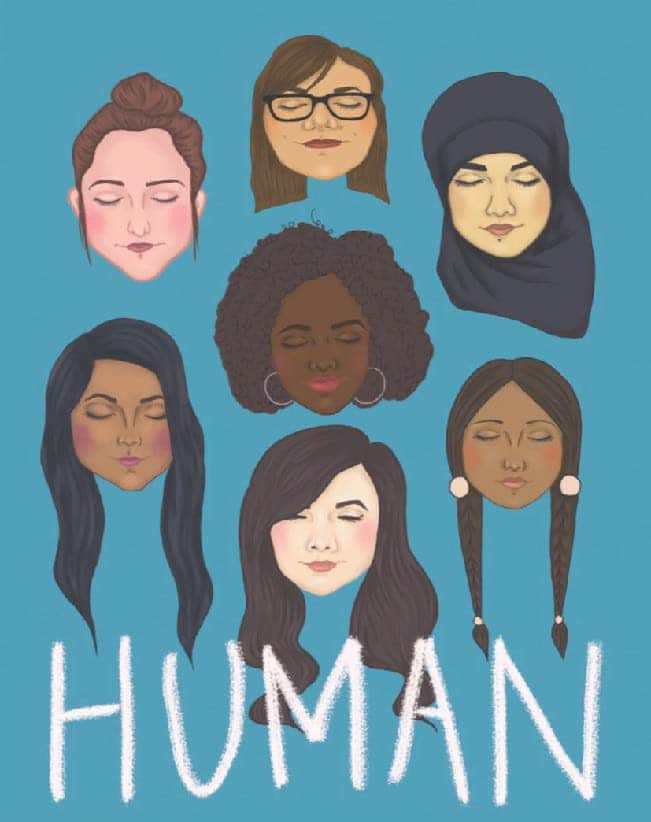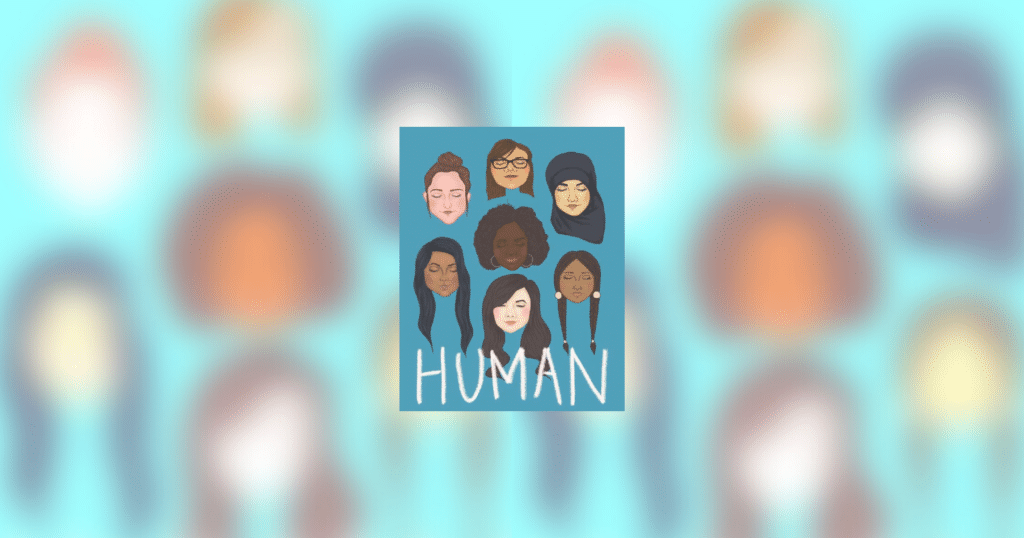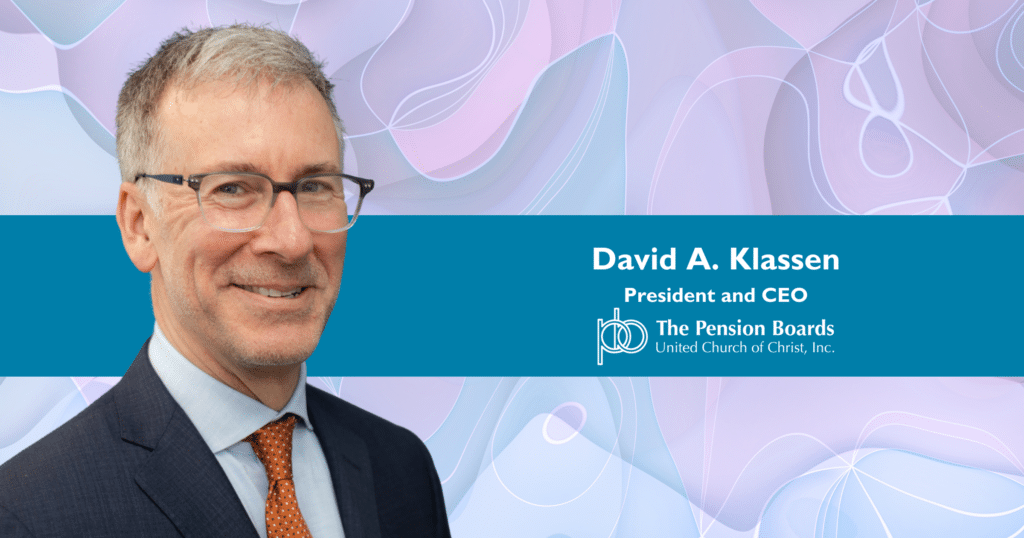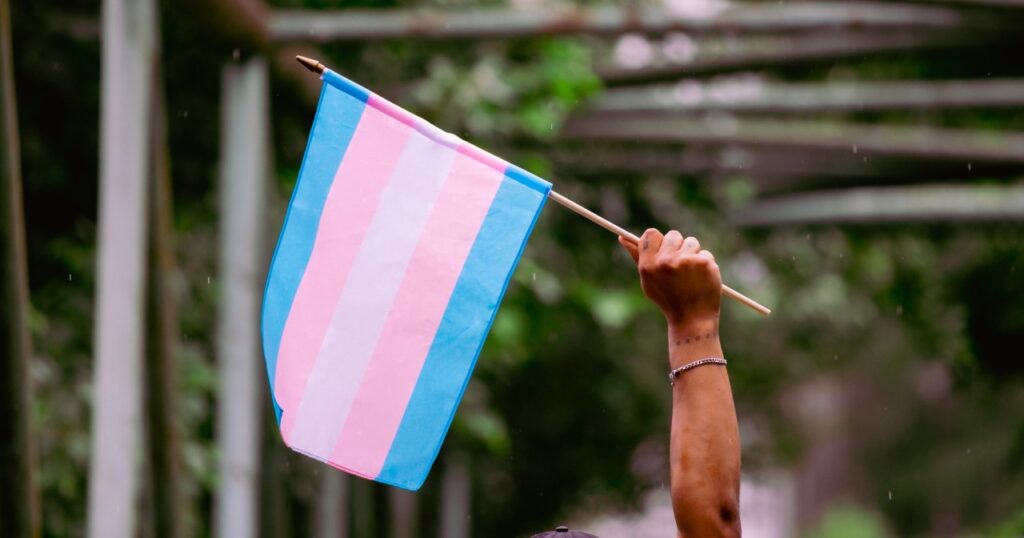German partners use two UCC learning programs in their fight against racism
For inspiration in their fight against racism, churches in Germany have turned to their U.S. partner, the United Church of Christ.
In the eastern part of the country, the UCC’s regional Protestant partners are using “Sacred Conversations to End Racism,” also known as SC2ER. In the west, they’re working with “White Privilege: Let’s Talk.”

The partners have translated and adapted these UCC learning programs for the German context.
Heard about it on Twitter
In Berlin, SC2ER caught the ear of the Rev. Josephine Furian via a UCC Twitter post. It led her to Podcast for a Just World, “where I first heard of Dr. Velda Love’s work,” she said, referring to the UCC’s minister for racial justice who created SC2ER. “I wanted to learn more.”
Furian works in refugee ministries with a regional church body within the UCC’s German partner denomination. She had also been following, online, the “great anti-racist work” of AfroGerman and other communities of color. As a person of European descent, she “learned much from them.”
“But the theological, spiritual and restorative approach of the SC2ER was new to me and fascinated me,” Furian said. “I lacked something like this in Germany.” In 2019, she applied to become a certified SC2ER trainer.
‘We have deep problems’
Love was impressed with Furian’s application, which read, in part:
“In Germany the migration law and policy is worsening day by day, becoming more and more restrictive — yes, [a] kind of colonial-racist warfare against migrants and refugees. There is not much done from the government to stop everyday racism. In fact, it is rather pushed by government through racial profiling, etc. We have deep problems and I want to work for justice, peace, and respect of creation. We are a predominantly white church, which needs to reflect on our own racism and get more involved in the struggle against racism. I want to do this in mostly white churches, but also in the ‘refugee church’ in Berlin, which is not predominantly white.”
“I was excited to have her join the SC2ER restorative racial justice journey and be our first international facilitator in training,” Love said. “As I read Josephine’s application, I knew her contributions would open our eyes to racism and injustices from another perspective. And likewise, she would gain a deeper understanding of racism — historical and contemporary — that continues to harm, violate and murder people of color within the U.S.”
Furian stayed up late — from 8 p.m. to midnight Berlin time — to join SC2ER’s twice-monthly training sessions via Zoom throughout the next year. Not only that, she took the “considerable amount of required preparation work” seriously and came to each session “prepared and ready to learn and participate,” Love said.
“Josephine was vetted and certified as a facilitator in December 2020,” she said.
The German experience
Now Furian has begun introducing her German adaptation of SC2ER in the regional Evangelical Church of Berlin, Brandenburg and Silesian Upper Lusatia. She and a Vietnamese German colleague, Lý Dang, led online sessions last spring and will offer more this fall.
“We had people together from many different congregations,” Furian said. “The bigger part of the participants were BIPOC (Black, Indigenous and people of color). We were blessed to have some experienced anti-racist activists and pastors. But really, the whole group was a blessing. The restorative, theological and spiritual approach against racism was new for all of us and brought us further on our journey.”
“What is institutionally missing is the remembrance of colonialism and the anti-colonial freedom movements.”
The Rev. Josephine Furian, Evangelical Church of Berlin, Brandenburg and Silesian Upper Lusatia
In some ways, racism — and the fight against it — are specific to Germany because of its history, Furian said. As examples, she mentioned Christian pograms — violent riots aimed at expulsion and massare of Jews — including violence encouraged by the 16th-century Reformer, Martin Luther, and particular aspects of Germany’s colonialist and Nazi past, which she sees as echoed in today’s immigration laws.
“The Holocaust is – and this was and is hard anti-fascist work – part of collective memory,” Furian said. “There is some educational and spiritual work done against antisemitism in Protestant churches and communities — though too little, seeing the rise of antisemitism. But what is institutionally missing is the remembrance of colonialism and the anti-colonial freedom movements.”
‘White’ as a presumed norm
Over in the western part of Germany, a UCC regional partner church took up White Privilege: Let’s Talk just as the Black Lives Matter movement emerged worldwide during the racial upheavals of 2020. The curriculum encourages participants to write autobiographies through the lens of race.
Even with its German translation still in a “test” phase, the curriculum played a role in an October 2020 conference sponsored by the Evangelical Church of Westphalia and another partner, the United Evangelical Mission.
In opening remarks, the Rev. Christina Biere, a member of that regional church’s staff, shared thoughts about her own whiteness. “At school and on the playground, playing football and riding the train, choosing a career and moving — everywhere it makes a difference whether you are white or Black,” she said. “…I’ve learned that white privilege is not something that individual white people intentionally create, but it’s a term for the fact that in a social system, privileges are granted on the basis that being white is the norm.”
Later, a UCC minister shared similar insights. The Rev. Eleanor McCormick is based in Baden as an ecumenical worker with the German regional church there. She described the impact the White Privilege curriculum had on her congregation — and on herself — when she was associate pastor of Plymouth Congregational UCC in Lawrence, Kan. She said it “helped us to find our story again and helped us to find our anti-racist voices again.”
“I myself had to learn that white privilege can exist beyond my own conscious knowledge of its presence,” McCormick told the gathering of German pastors, laypeople and students. “I had to reflect on the fact that white privilege is not something that I, as a white person, necessarily did, created or enjoyed on purpose, but that white privilege, the color of my skin, had [awarded] and still does award me preferences and privileges, access and capital, based on the presumptions of white as norm.”
‘Critical self-reflection’
“I’ve learned that white privilege is not something that individual white people intentionally create. … In a social system, privileges are granted on the basis that being white is the norm.”
The Rev. Christina Biere, Evangelical Church of Westphalia
A South African speaker urged white churches on. “We must realize that racism — structural, institutional and interpersonal — thrives on silence,” said the Rev. Quinton Caesar, a theologian serving as a pastor in the Evangelical Church in the Rhineland. “That is why, as a church, we must be loud in the face of racial injustice, wherever we find it.
“The white churches in Germany must, as a point of departure, have a critical self-reflection on their own whiteness and the white privilege that comes with it. By doing this, white churches in Germany will hopefully come to realize the danger of a single white Christian theological perspective.”
A published summary of the conference, distributed to German churches, named the translation of White Privilege: Let’s Talk among its recommended resources. A follow-up conference is set for November 2021.
‘Shared commitments’
The Rev. John Dorhauer, UCC general minister and president, said these developments are just the latest fruits of a relationship with German partners — it’s called “church communion,” or “Kirchengemeinschaft” — that formally dates back to 1981. He said he was “thrilled” to grant their request to translate the White Privilege text “and to have some liberties to adapt it within their context.”
“They were very intrigued by the proposition of taking an honest inventory in their own context of the manifestations and impacts of privilege,” he said. “Reports that they have shared with us reveal a church deeply committed to an honest interrogation of current practices that center whiteness. It remains an ongoing topic of conversation in our dialogues with these critical and long-valued partners. There is deep appreciation on both sides about shared commitments to build a world free of racism and white privilege.”
“Reports that they have shared with us reveal a church deeply committed to an honest interrogation of current practices that center whiteness.”
The Rev. John Dorhauer, UCC general minister and president
Despite historical differences, the white church in Germany shares much in common with the white church in the UCC, Furian said. Both need to repent of “white Christian supremacy.” “Our churches have profited from racist capitalism,” she said. “And both our churches are dominated by people of European descent, though maybe yours less, I pray and believe.
“Although we live in different contexts, we are connected in the body of Jesus Christ, that, I believe, is longing for de-colonial transformation and healing.”
Applications are now being accepted here through Dec. 31 for the 2022 round of SC2ER facilitator training. Churches and individuals can learn more about SC2ER here, and about White Privilege: Let’s Talk here.
Related News
Pension Boards appoints David A. Klassen as its President, CEO
The Pension Boards, an affiliated ministry of the United Church of Christ recently announced its...
Read MoreTrans Day of Visibility message from UCC’s Thompson: ‘We will continue to show up and speak up’
On March 31, pale pink and baby blue striped flags fluttered in the wind in front of homes,...
Read MoreHelp Wanted
While in Washington, DC on Ash Wednesday, the 44th day of the current administration, I made...
Read More



